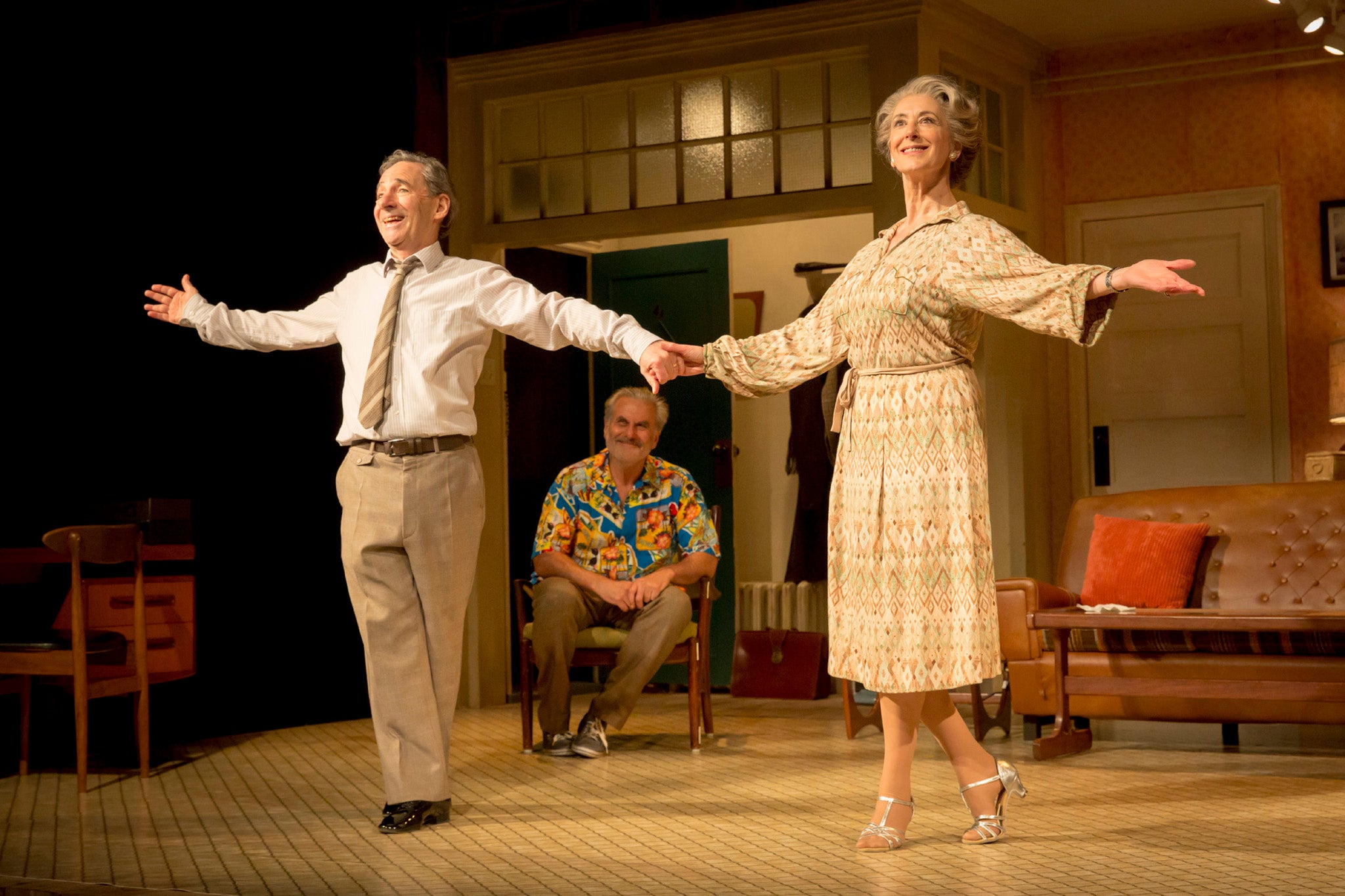Daytona, Theatre Royal Haymarket, review: Fails to ring true

There's an Arthur Miller-like feel to the set-up in Oliver Cotton's play: two estranged brothers; the moral and emotional fall-out of the Holocaust; the corrosive consequences of denying one's Jewishness.
And watching David Grindley's production (first seen last year at the Park Theatre, now transferred to the West End), I couldn't help fervently wishing that the Miller of, say, Broken Glass had got to the material first. There's real potential in the premise; it's because of authorial clumsiness in the way the idea is handled that the play comes over as hollow and unearned.
We're in Brooklyn in 1986 and Joe and Elli, a long-married septuaginarian couple (Harry Shearer and Maureen Lipman who capture their niggling but contented-through-habit relationship well) are practising in their apartment for a seniors' ballroom dancing competition the following night.
After Ellie leaves for a dress fitting, there's a ring at the door and in walks Joe's brother and former business partner, Billy (played by Cotton himself). The siblings haven't seen each other in thirty years since Billy disappeared without trace leaving Joe in serious debt and now here he is out of the blue – eccentrically clad, for the depth of winter, in a Hawaiian shirt and sweat pants under an outsize overcoat and bearing enough Chinese take-away to feed the neighbourhood.
There are two big revelations in the play – concerning why Billy has come back and why he vanished in the first place. It's impossible to discuss the strengths and weaknesses of the piece without addressing the former and if you wish to keep this as a surprise, I suggest that you stop reading now.
As he knocks back the whisky, Billy tells a drawn-out story of how, while holidaying at Daytona Beach in Florida, he recognised a face from the wartime past: a concentration camp guard. He's now on the run, having shot the man in the swimming pool before hundreds of witnesses. Cotton's performance registers vividly the weird mix of euphoria and perplexity in Billy for whom this reckless gesture seems to have been one of self-atonement as well as summary justice.
Shearer's Joe glowers bitterly as the overshadowed brother who resents having this shocking news brought to him as though it were a kind of gift. And he's all the more unsympathetic when it emerges that Billy has reinvented himself as a Christian family man and real estate dealer in Cleveland, Ohio – creating a queasy correspondence, in terms of erased previous existences, with the guard (if so he was) that Billy has just killed.
The trouble, though, is that far too much is schematically signalled and fails to ring true. The characters do certain things (the wanted man request a climactic ballroom dance exhibition from the other two. say) not from plausible motives but to serve the creaky dramatic structure. The best parts are the long set-pieces which almost made me feel that, given Cotton's gift for these, the story would have been better told as interwoven monologues.
I'm rather hobbled in talking about Lipman's excellent performance by having to preserve a secret. But, her New York accent slipping into Mittel-European under the pressure of remembered loss, she is gently devastating as the sad drily witty wife who has had to learn make the most of the second best.
To 23 August; 0207 930 8800
Join our commenting forum
Join thought-provoking conversations, follow other Independent readers and see their replies
Comments